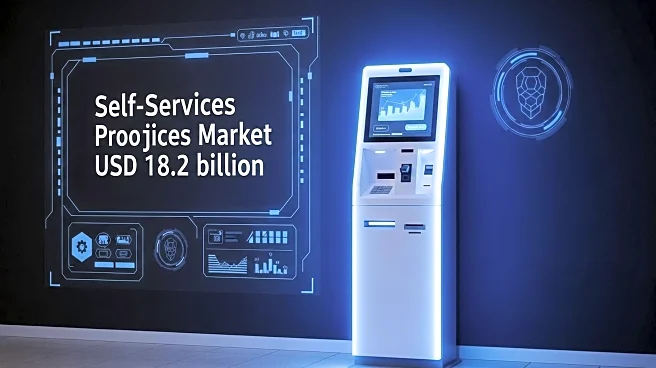What's Happening?
The global Self Services Technology market is projected to reach USD 18.2 billion by 2031, driven by increasing demand for automation and improved customer experiences across industries. Businesses are adopting self-service solutions like kiosks and mobile apps to streamline operations and enhance efficiency. Advancements in AI and machine learning are enabling more personalized interactions, while consumer preference for contactless services accelerates adoption. The market is expected to expand robustly in North America, Europe, and Asia-Pacific, with North America leading due to high technological maturity.
Why It's Important?
The growth of the Self Services Technology market is significant for the U.S. business and technology sectors, as it reflects the increasing demand for automation and digital solutions. By enhancing customer experiences and operational efficiency, self-service technologies support advancements in various industries, including retail, hospitality, and banking. The integration of AI and machine learning enables more intuitive interactions, driving innovation and improving service delivery. As the market continues to expand, it promises to transform business operations and enhance consumer engagement.
What's Next?
The continued adoption of self-service technologies is expected to drive further advancements in automation and digital solutions, with potential applications across diverse industries. Businesses may explore new opportunities to leverage these technologies, enhancing customer experiences and operational efficiency. As the market evolves, further improvements in AI and machine learning capabilities could expand the scope of self-service solutions, fostering innovation and collaboration across sectors.
Beyond the Headlines
The ethical considerations of self-service technologies, such as data privacy and security, may become more prominent as these solutions are adopted more widely. Legal frameworks and policies will need to evolve to address these issues, ensuring responsible use of automated systems. Additionally, cultural shifts in how self-service technologies are perceived and utilized in business could emerge, influencing public attitudes towards automation and its impact on consumer experiences.









